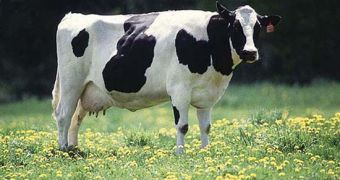Several researchers are now busy trying to genetically engineer hornless dairy cows. The breed targeted by this research is Holstein, currently one of the most popular dairy cows in the world.
Their reasons for embarking on such a project have everything to do with the safety of farmers and perhaps even animal rights.
Not to beat about the bush, cow horns can cause serious injuries, which is why farmers do their best to avoid coming in close contact with them.
Because of such safety issues, most farms have taken up the habit of dehorning their cattle. However, several green-oriented groups such as PETA (People for the Ethical Treatment of Animals) have argued that the practice of dehorning needs to be banned on account of its being inhumane and utterly cruel.
Given all the above, the idea to genetically engineer hornless cattle appears to be a noteworthy one.
As Genetics Professor Scott Fahrenkrug, now working with the University of Minnesota, said, “Creating hornless dairy cows would decrease animal suffering, protect people and cut costs.”
“It would be very positive to create hornless cows. It would save a lot of time for us and pain for the calf. Everybody wins,” further argued Mansel Raymond of the National Farmers' Union.
The scientists now working on this project wish to reassure the general public that, apart from their sporting no horns on their heads, these GM cows would be no different from other livestock. Sources say that, in order to create these hornless cows, researchers need only insert extra DNA into the genome of run-off-the-mill Holsteins.
The DNA used by the scientists in their experiments is known for its ability to halt the growth of horns in other breeds of cattle.
Thus, it appears that farmers have thus far succeeded in breeding hornless beef cattle.
Still, when they wished to use the same methods and obtain hornless dairy cows, they found that the lack of horns negatively impacted on milk yields.

 14 DAY TRIAL //
14 DAY TRIAL //